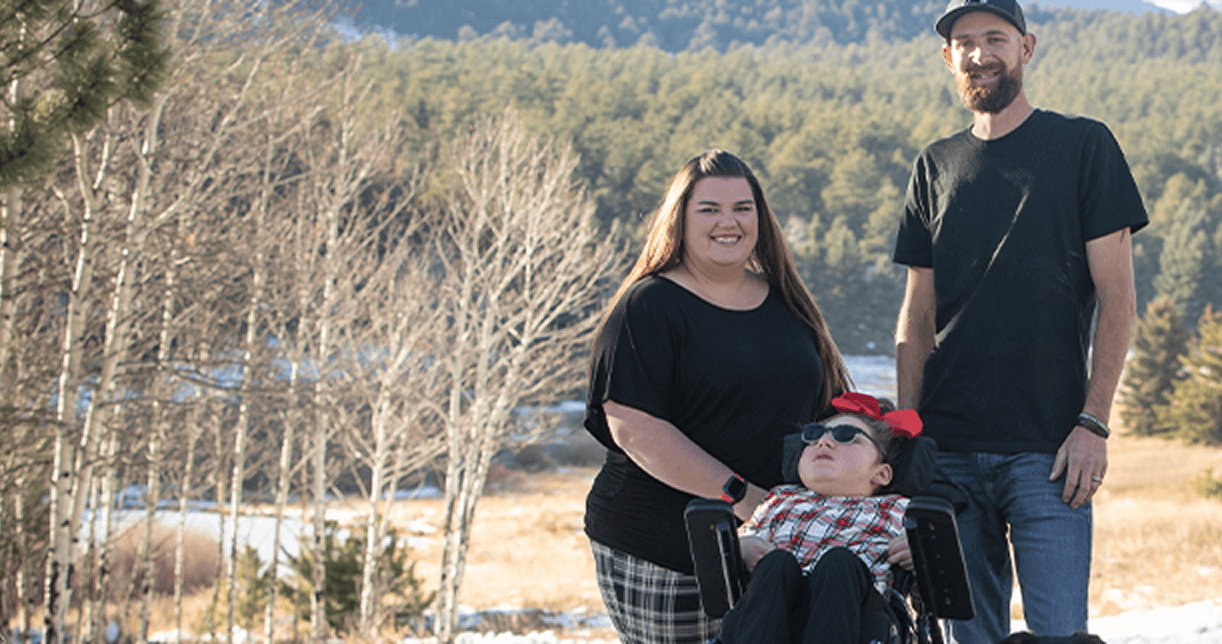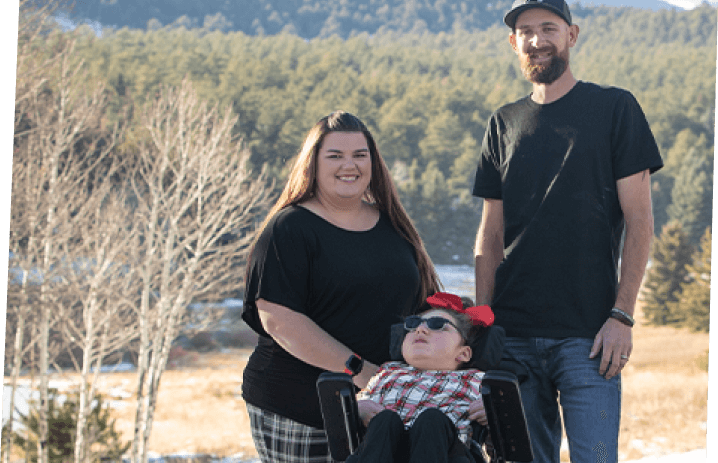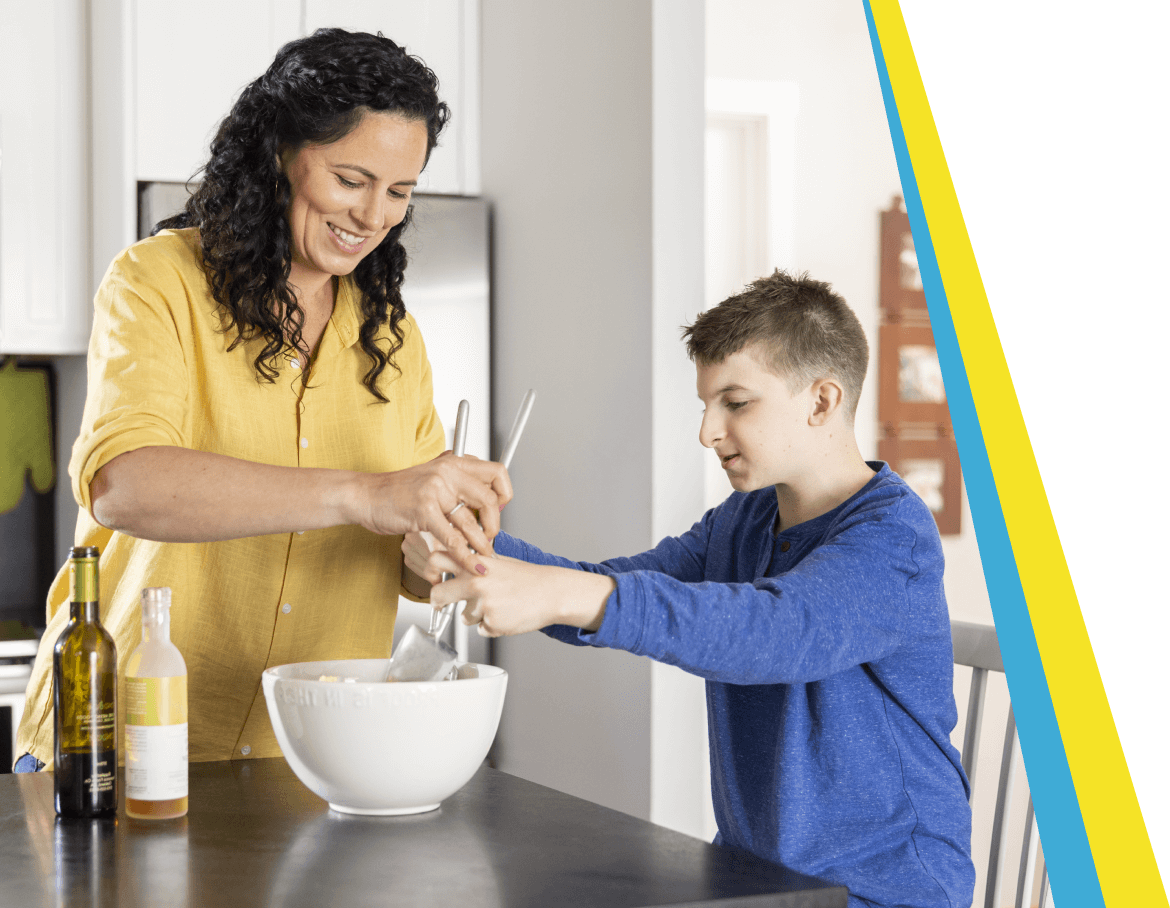

We have seen Klohe's life change. She is laughing for the first time. She's grabbing for toys.
—Jordan, Klohe's mom


LGS and Your Loved One's Development
LGS is different for everyone who is diagnosed. Though it most often develops in preschool years, LGS is a lifelong journey. LGS and some of its treatments may also affect your child’s intellectual abilities, motor skills, and sleep as they develop. As they get older, it’s important to stay aware of any changes in these areas.
LGS Affects Everyone Differently
Every person’s experience with LGS is different. However, there are symptoms that are common to many people with this condition. Here are some of them, along with tips that caregivers have shared that have helped them and their loved ones:
Learning & Behavior
Many children with LGS develop intellectual limitations, which can become more challenging as they get older. Differences in behavior are also common and often get worse with age. Examples include aggression, autism, and hyperactivity.
Tips from other caregivers:
- Singing songs or playing music can help your loved one decompress
- Sensory toys are a great way to shift your loved one’s focus toward a positive activity
- Noise-canceling headphones allow your loved one to remove themselves from a situation and refocus on listening to music, playing a game, or watching a video
Behavior, learning, & lifestyle changes in adults:
It's completely normal for your child to experience behavioral changes as they age. There are plenty of social programs and rehabilitation services that can help your child.
Strength & Mobility
It's not uncommon for those with LGS to have difficulty with mobility. Seizures can be physically demanding, and protective equipment can sometimes make moving around even more challenging.
Tips from other caregivers:
- Wearing clothes with elastic or Velcro® can help ease the process of getting dressed
- A wheelchair can make it easier to get around
- Allow your loved one a first try at activities that give them a chance to show more independence, if they're able to, such as brushing their teeth before doing a "parent brush"
Strength & mobility in adulthood:
As they grow, so can their independence. This is a good time for you to encourage more independence when it comes to certain activities.
As their body changes, the equipment that you use for managing mobility will change too. This might mean bigger wheelchairs or larger, accessible clothing (Velcro® and zippers).
Sleep
Those with LGS often struggle with sleep issues due to seizures during the night.
Tips from other caregivers:
- Set a bedtime and try to stick to that schedule
- Talk to a doctor to see if a sleeping aid is the right choice for your loved one
- Consider trying melatonin in the evening
Sleep habits in adulthood:
Sleeping habits might change along with routine during the adult years.
Start Planning for the Future With C.A.R.E.
If your loved one with LGS is growing into adulthood, our interactive C.A.R.E. (Caring for Adults with Rare Epilepsy) tool can help you prepare to transition them from pediatric to adult care. It is a comprehensive, step-by-step guide co-created by caregivers like yourself and healthcare providers for:
- Planning for long-term care
- Preparing for when you may no longer be able to be the primary caregiver
Get started with the C.A.R.E. Binder
The transition to adolescent or adult neurological care:
Eventually, your child will transition from pediatric care to adult care. It can feel unsettling at first to start the process of finding a new care team, but adolescent clinics include pediatric and adult neurology teams that can help ensure a smooth transition.
Are you a parent or caregiver of an adult living with LGS? The LGS Foundation has a monthly support group for community members just like you. Join to discuss and navigate the unique struggles when caring for an adult living with LGS.

Get support and inspiration from other parents and caregivers from Shine Forward With LGS